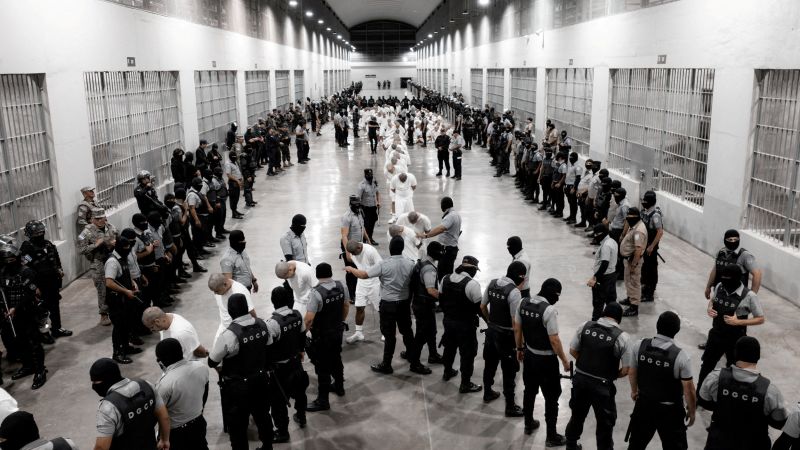In a significant legal development, a federal judge in Maryland has mandated the Trump administration to facilitate the return of a 20-year-old Venezuelan man, identified only as “Cristian,” who was deported to El Salvador. The ruling underscores the complexities of immigration law and highlights ongoing judicial conflicts with the executive branch concerning the deportation of young asylum seekers. This decision comes in the wake of a court settlement established to protect the asylum claims of minors who arrived unaccompanied in the United States. The court ruled that Cristian’s deportation contravened this settlement, which stipulates that such individuals cannot be removed from the U.S. until their claims have been thoroughly evaluated.
The class action lawsuit that includes Cristian was initiated in 2019, aimed at safeguarding the rights of minors who entered the U.S. without guardians. The settlement, finalized in late 2024, ensures that the asylum requests of these individuals receive just adjudication before any potential deportations are executed. The judge presiding over the case, U.S. District Judge Stephanie Gallagher, was nominated by former President Donald Trump in a previous administration shakeup. Judge Gallagher’s directive compels the Trump administration to negotiate with Salvadoran authorities for Cristian’s repatriation back to the United States.
Judge Gallagher’s order stands out as the second such directive regarding the deportation of individuals linked to this contentious immigration policy. It emphasizes a growing conflict between the judicial system and the executive branch over the degree of judicial authority in immigration matters. The ruling showcases the courts’ role in offering a check on executive actions, particularly in light of previous rulings, such as that involving Kilmar Abrego Garcia, a case that also addressed wrongful deportation.
In her ruling, Gallagher expressed her determination to ensure that Cristian is granted the legal protections he deserves as per the agreement forged in the class action lawsuit. Citing historical precedents, she commanded that the federal government make earnest requests for Cristian to be returned to the U.S. custody to await a comprehensive adjudication of his asylum application by the United States Citizenship and Immigration Services (USCIS). According to Gallagher, the Biden administration’s actions amounted to a “breach of contract” regarding the settlement agreement.
The federal government, in its defense, contended that Cristian’s deportation was lawful, asserting that he was designated as an “alien enemy” under the Alien Enemies Act, a legislation dating back to the 18th century. This designation was supposedly effectuated because of allegations linking him to the Tren de Aragua, a Venezuelan criminal organization that Trump has accused of inciting an “invasion” of the U.S. A sworn declaration from Robert Cerna, the acting Field Office Director of the Immigration and Customs Enforcement (ICE), confirmed that Cristian had been arrested in Texas earlier this year and subsequently deported.
The ruling raises critical questions regarding the Trump administration’s level of compliance with judicial orders as it struggles to address various immigration predicaments, including the high-profile Abrego Garcia case, where the administration is under scrutiny for repeatedly failing to comply with court directives to aid in the return of a wrongly deported individual.
Furthermore, the administration’s portrayal of Cristian as a dangerous individual with gang affiliations conflicts with assertions from his family and legal representatives, who vehemently deny such claims. Meanwhile, Democratic Senator Chris Van Hollen from Maryland traveled to El Salvador to advocate for Cristian’s release, drawing ire from the Trump administration, which disparaged the senator’s actions as misrepresentation of Cristian’s situation.
As this legal saga unfolds, it creates a broader discourse about the limitations of presidential power in immigration enforcement, particularly regarding vulnerable populations such as unaccompanied minor asylum seekers. The implications of Gallagher’s ruling could set crucial precedents in handling similar cases, indicating that the pathways for asylum seekers ought to be safeguarded against administrative overreach.



